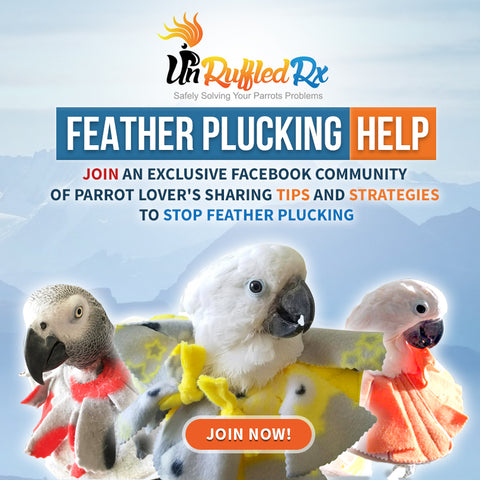
Learn About Bird Care for Various Parrot Species
- Choosing a Pet Bird
- About African Grey Parrots
- About Cockatoo's
- About Eclectus Parrot Care
- About Macaw Parrots
- About Parakeets as Pets
- Is Your Air Safe for You and Your Bird?
- Bird Cage Accessories for African Grey Parrots
- Caring for Your Pet Cockatiel
- Daily, Weekly and Monthly Bird Care Plan
- How to Clean a Bird Cage
- The 8 Genera of Conure Parrots
- Sneak Peak Bird First Aid Book
- Sick Bird Care
- Evacuation and Emergency Bird Care
- Feather Plucking and Feather Care
- Pet Bird Safety, Care and Grooming
- Healthy Bird Food
- How to Train a Parrot
- Parrot Anatomy 101
If you’re drawn to birds, then having a bird as a pet may be one of the most rewarding, potentially life –long relationships you’ll experience. Birds require a substantial amount of care to maintain good emotional and physical health. Here are some general guidelines to insure that your bird remains happy and healthy.
The first thing you must know is what to look for to determine if your pet is in good health or ailing. Healthy birds have bright eyes, clean and intact feathers, they enjoy eating throughout the day, they have matted material around eyes, nares or vent and they are active and vocal.
Bird Care for Sick Birds
A sick bird, on the other hand may be quiet, lethargic, fluffed up, have discharge around eyes, nares or vent and be too weak to perch, instead you may find it sitting on the bottom of the cage. Watch for signs of breathing difficulties, too. Weak or ill birds generally refuse to eat and they rapidly lose weight and electrolytes. By the time your bird shows overt signs of illness, it may be critically ill. You’ll want to keep a close eye on your bird every day, observing for normal healthy behavior, examining its droppings and monitoring its weight at least weekly. Feel your birds keel or breast bone as you pet it each day.
Parrots that suddenly die have usually been quite ill for a long time and no one recognized the symptoms. That’s why you’ll want to know what normal behavior for your bird is and observe it on a daily basis. If your bird begins losing weight, take it to the vet.
Locate an avian vet before your bird gets ill and get yearly wellness checks. That way, you’ll, hopefully catch any disease process early. Your vet can also assist you with special needs care for your particular species of parrot and conduct routine grooming care. Ask your vet about dietary recommendations, housing needs and any other needs your particular pet may have.
Bird Care is essential for a physically and mentally healhy bird.


